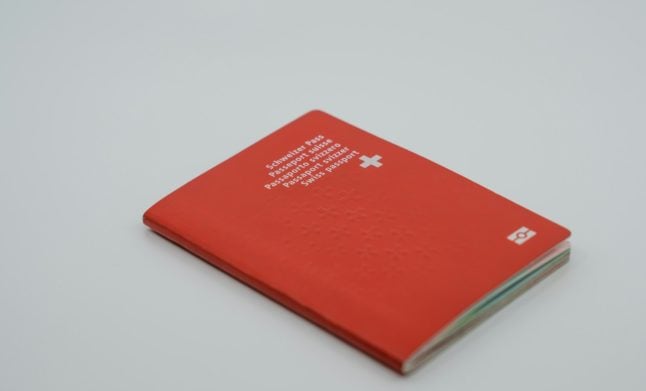In 2023, some 41,299 foreign nationals acquired Swiss citizenship, according to new data gathered by the State Secretariat for Migration (SEM).
That reflects a similar number to those who naturalised in recent years meaning the trend is fairly stable.
Just over 17 percent of them were naturalised under the simplified / fast-track process that is reserved for foreign spouses or children of Swiss citizens, as well as third-generation foreigners.
The majority, however, had to go through the lengthier ‘ordinary’ procedure.
READ ALSO: When can I start counting my residency in Switzerland towards citizenship?
Where did these new citizens come from?
Half of those who were naturalised came from Germany, Italy, France, Portugal, and Spain.
A third (33 percent) hail from other European nations, while 17 percent originate from third countries.
What else does the data reveal?
Other than the number of Swiss passport recipients, SEM also looked at immigration figures for 2023.
It found that the course of the year, 181,553 foreign nationals moved to Switzerland — 95 percent from the EU or EFTA states (Norway, Iceland, and Liechtenstein).
The main reason for the move was employment, followed by family reunification, and education or training.
People from outside EU / EFTA benefitted from 7,480 work permits — 848 were issued to UK nationals and 6,632 to people from other third countries.
This means that quota available for these people — 12,000 in all, including 3,500 set aside for the Brits — was not fully used.



 Please whitelist us to continue reading.
Please whitelist us to continue reading.
Member comments